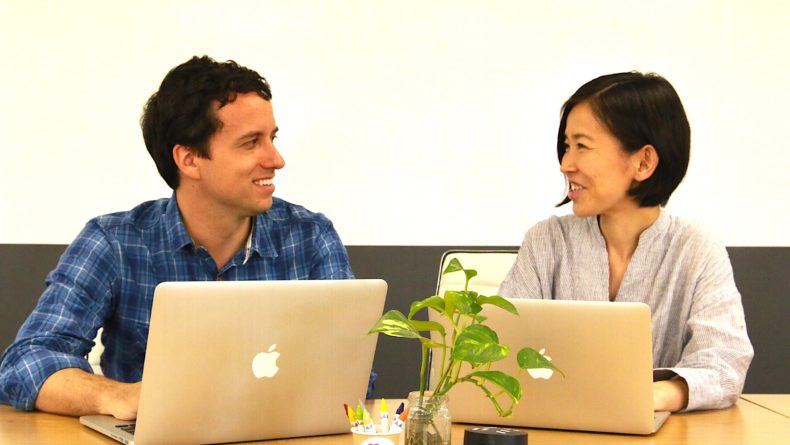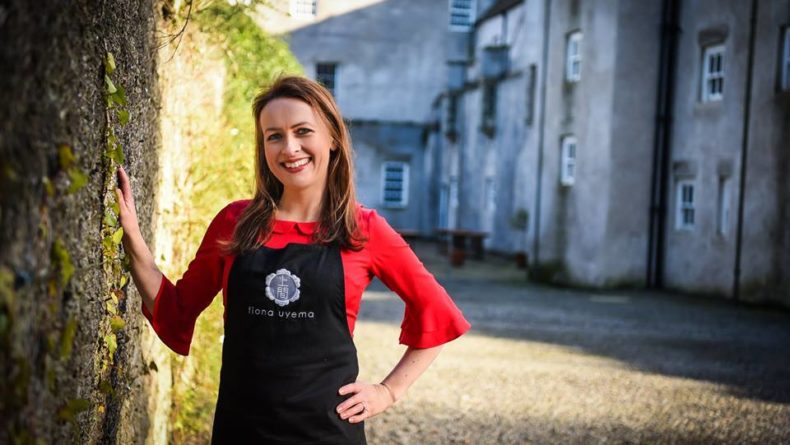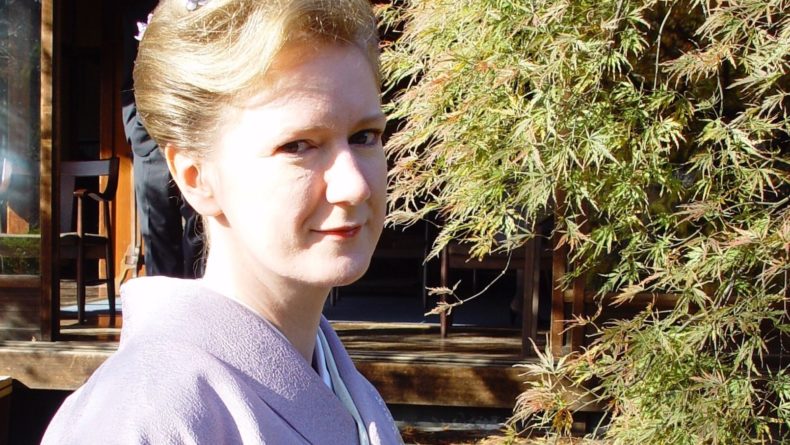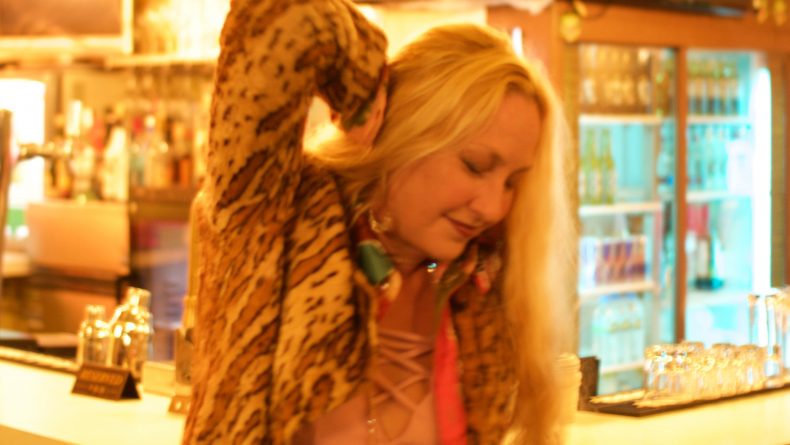Savvy Spotlight: Violinist Nagisa Sakaki Of Nagisa Strings
One Japanese Woman's Love For The String And Bow
From Osaka to Tokyo and to Germany and back, Nagisa Sakaki's love for the string has guided her way through all her journeys.
Inspired from years studying and performing with leading musicians in Germany, Osaka-born professional violinist Nagisa Sakaki couldn’t wait to jump into the classical music scene on her return to Tokyo. Once here, however, she found that skill and passion were not the only requirements and she was soon drawing on her strong network, determination and entrepreneurial spirit to ensure success.
Sakaki spoke to Savvy Tokyo about her early years in Japan, the challenges she faced and overcame in Germany, and how she continues to use those experiences in her music career in Tokyo. From freelancing to performing for the Tokyo Sinfonia to setting up her own business, she shares her love of her work and what the future might hold.
What got you interested in the violin?
There was a violin teacher in my neighborhood in Osaka who had a pool in her garden. I really wanted to swim in it so that got me interested in taking lessons with her. I started learning at age six, which is considered quite old because many professional violinists start playing at age three.
At what point did you think music could be a career?
I was playing soccer and doing track and field before I started playing the violin, and I continued to have more interest in sports than in music after I took it up. During sixth grade, I won a local music competition in Kobe and realized that I could do something good with the violin. I quit soccer to put more effort into practicing. About the same time, my family moved to Tokyo and I later went on to attend high school at the Toho Gakuen School of Music in the suburbs of the city with the hope of becoming professional.
What happened next?
I hated studying! I think at least a basic understanding of music history, theory and composition is required to play well (which I have), and understanding the story behind the composer will help express the sentiment behind the notes, but I don’t think we need to study music in order to play it.
I was so happy to perform for an audience that nothing really seemed too tough.
While spending a week in Kagoshima Prefecture at a classic music festival as part of my course, I met a violin teacher in his eighties who was visiting the festival from Germany. I loved his lessons and, after high school graduation, I accepted his invitation to perform and learn from him in Germany.
What challenges did you face?
I had taken basic German lessons at high school but I couldn’t really speak the language. For the first six months, I was mostly doing gestures to communicate. I was thrown right into the deep end with many solo concert performances to give right away so sometimes it felt like my every waking minute was spent at the music department. I also missed things from home, such as sesame dressing, which I asked my family to send to me.
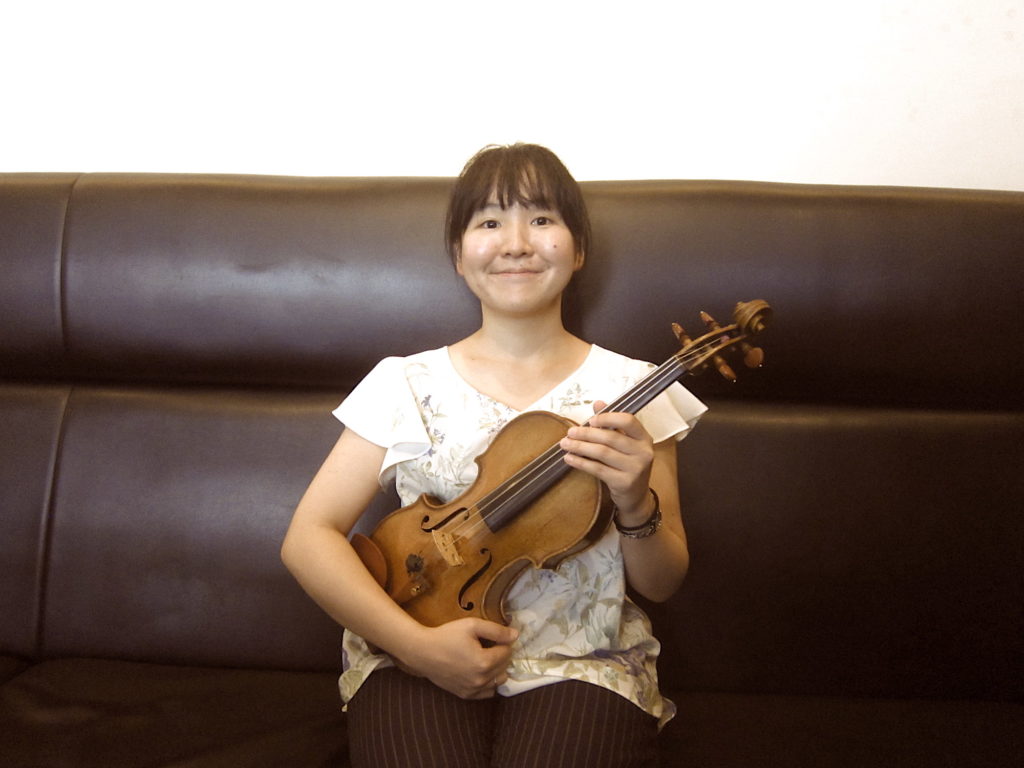
How did you overcome those challenges?
I was so happy to perform for an audience that nothing really seemed too tough. My love of performing encouraged me to work hard; I took violin lessons while carrying out performances and learned German as fast as I could. I didn’t feel out of place when I arrived so I was able to get settled into my new life quickly — if anything, I felt more culture shock when I returned home to Japan five years later.
How did you establish yourself in Tokyo as a professional musician?
Most violinists are also teachers, which helps support their income, but I don’t have the vocation to teach, so I knew that I had to find regular work performing. In the week I returned from Germany, I didn’t get any work at all. I didn’t know how I would survive. Soon, though, I began to get introductions and my network started to grow. I became a studio musician, playing backing parts for groups and all kinds of music to accompany commercials for television. I also did some work in the pop genre, which included playing at some live pop music events.
Why did you set up Nagisa Strings?
I didn’t really have a plan but I was enjoying my work as a studio musician so I set up Nagisa Strings so I could be both a player and coordinator. People contact me to request a player or players to perform a particular piece of music or genre. It’s really fun to consider who I know that would be suitable for each role and bring everyone together. I have a chance to meet and play with so many people.
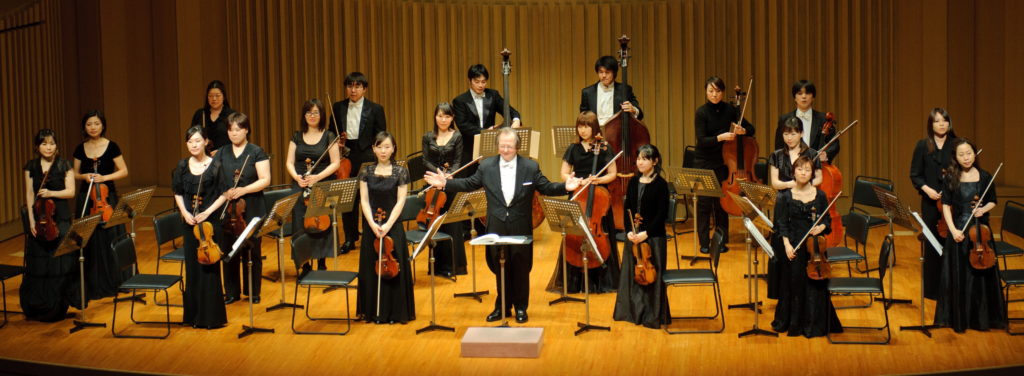
Sakaki, to the right of the maestro, performs with the Tokyo Sinfonia.
How did you get back into classical music?
There was a piece I really wanted to perform and, at one audition, the host was offering musicians the chance to play a piece of their choice so I went along. One of the judges, Robert Ryker, then called to ask if I would join his orchestra, the Tokyo Sinfonia, and I accepted. It was my first experience playing in a classical music orchestra in Japan. I performed regularly with the Tokyo Sinfonia for six years and still play occasionally for them now.
What did you gain from the experience?
The orchestra has a really interesting and unique style. Depending on size and music, 12 first violins on average will play the same part in an orchestra but the Tokyo Sinfonia has only 19 players and each one’s musical score is different. At first, it was surprising and challenging as I couldn’t follow others: at times I played alone, with small groups and or with the whole orchestra. But playing in this way is a great opportunity for my personal and professional development. We perform famous composers’ minor works, bringing great, less well-known pieces to the public, and I’ve been able to do solo performances. In other orchestras, only the top players are given that opportunity. And due to the small number of players, everyone feels they can put forward their opinions about music, resulting in great discussions.
What’s your next challenge?
A contact through Nagisa Strings asked me to try out for the Japan Philharmonic Orchestra so I’m currently in that process. From December 2017 to March 2018 I will be playing the entire repertoire with the players, and a decision on selection will be made at the end of March.
What do you do when you’re not playing music?
I have two dogs so I love going for walks in the park near my home in Kanagawa Prefecture. Right after a performance, I usually want a total break from music for a little bit but aside from that I normally have no days in which I don’t want to listen to some type of music. I love listening to jazz during my time off.
Savvy Spotlight is a monthly feature introducing foreign and Japanese women at the frontline of what’s successful, contributing, cool, unique and interesting in the city. If you have anyone in mind you would like us to interview, leave us a comment below with your recommendations!












